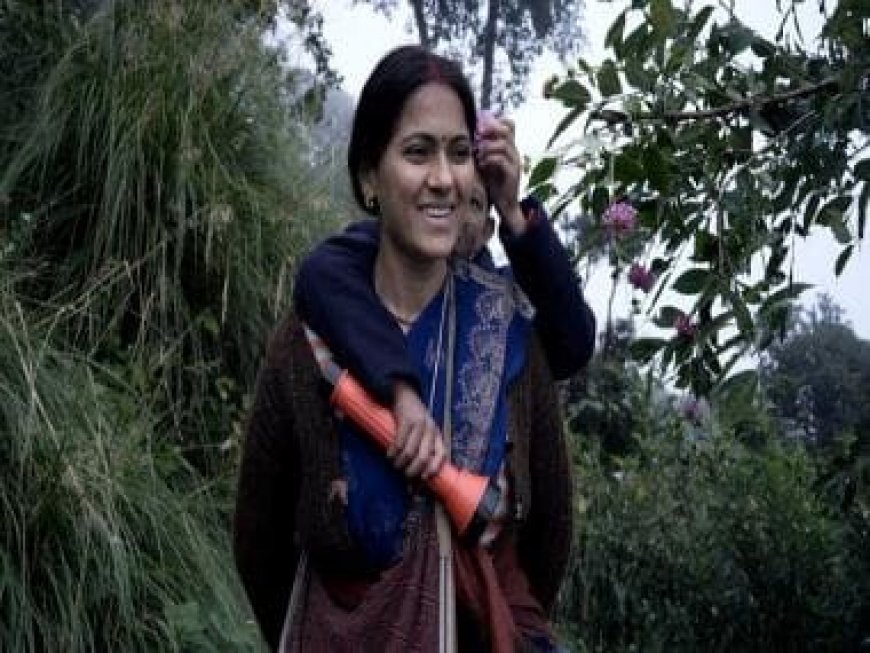In Fire In the Mountains movie women offer a triangulated view of isolation
In Fire In the Mountains movie women offer a triangulated view of isolation

In a scene from Ajitpal Singh’s Fire in the Mountains, Kamla, a widow living with her brother’s family, quietly touches herself sensually, unaffected by the havoc unravelling outside her bedroom door. In another scene she quietly gobbles down entire gulab-jamuns, as if her life’s sustenance depends on it. Singh’s film, streaming on SonyLiv centres on Chandra’s desperate attempts to keep her house, her children and a toxic husband in order. But flanking her canopy of woe, on either side are women, who give this film, a surreal relevance in the wider context of gender and sexuality as it operates in the mountains. It’s in the daughter’s stubborn reach for the morally obscure, and in Kamla’s hidden, but misunderstood desire for agency.
The mountains obscure in more ways than they delight. It’s written into the way the creases become sociological conduits for both patriarchy and sexism. It’s possibly as easy to hide in the hills, as it is to keep things hidden. For people like me, who grew up in the mountains, fed with the innocence of visual splendour as a form of social compensation, it took years to fully understand the line between self-serving fantasy and reality; the brutalising idea that because women in the hills seldom spoke, cried or wailed, they were possibly also safe. It’s more a geographic lie than a social one.
In Fire in the Mountains, the men shout, indulge in excesses and openly court ridicule. The women, however, are restricted to looking for quiet, shadowy spaces. Chandra’s daughter for example, grapples with adolescent desires with the assistance of a romantic lover. It’s a side of her she can only really submit to without competing. Even an empathetic father’s response to her whims is violence. Each woman, in this film must contend with the spurious nature of desire itself, its visceral pledge that turns of a moan of pleasure, into a disquieting fact about a woman’s sexuality. In the hills gossip travels faster, because there isn’t the distraction of a sea of people cutting between any two houses. The line of sight, the intimacy of a handful of familiar voices, is all part of the social economy. The desire to scream, thus, never meets the desperation to express. It does, however, make for a hair-raising climax in Singh’s film.
Of the three women portrayed by Fire in the Mountains, none are possibly happy with the boundaries they are forced to live within. But it’s Kamla, whose passing presence echoes a rudimentary blindness to the state of women in these mountains. When a place that is supposed to echo beauty and serenity in each breath, becomes suffocating, where does a woman go? It’s the journey that Kamla probably takes, by disappearing. Barely present as an axiom to the rest of the story, her presence is discomforting, forlorn and enigmatic. The fact that she isn’t allowed a redemptive arc, or even the cursory glance of curiosity after being walloped by a scenic landscape, feels prophetic and telling. The insistence to look away and not follow the woman who has chosen to leave is symbolic of what actual escapes look like. They aren’t moneyed arrangements by the brook, overlooking dense meadows, as most urban dwellers imagine. They are seditious, dispassionate rejections of the pageantry that mountains have been turned into. Understandably, even fellow women don’t fully grasp its urgency. Everyone has been in on the lie from the start, at times unknowingly.
If you sift through local newspapers and portals, you’ll realise just how conflicted and at-war with itself the hills have been for some time now. Far from the roomy, airy escape they represent, these places have become dens of sexism and drugs. The women can either, as Fire in the Mountains showcases, comply (Chandra) or leave (Kamla). But what happens when the place everyone flocks to for a moment of relief, for a sense of mental and physical justice, begins to claw at its makers – the people who run these places? You then either mount a mutiny of sorts or like Kamla, retreat at least metaphorically, into the shadowy depths of the forest. It’s where battle-hardened tigresses now live, far away from judgment and ridicule. The fact that no one goes looking, is echoed by the fear of finding that which already do not believe. It’s therefore Kamla’s story that maybe deserves a cautious, empathetic portrayal somewhere down the line. But a gruesome, typical true-crime thriller is what we might get.
Read all the Latest News, Trending News, Cricket News, Bollywood News, India News and Entertainment News here. Follow us on Facebook, Twitter and Instagram.
What's Your Reaction?


























































